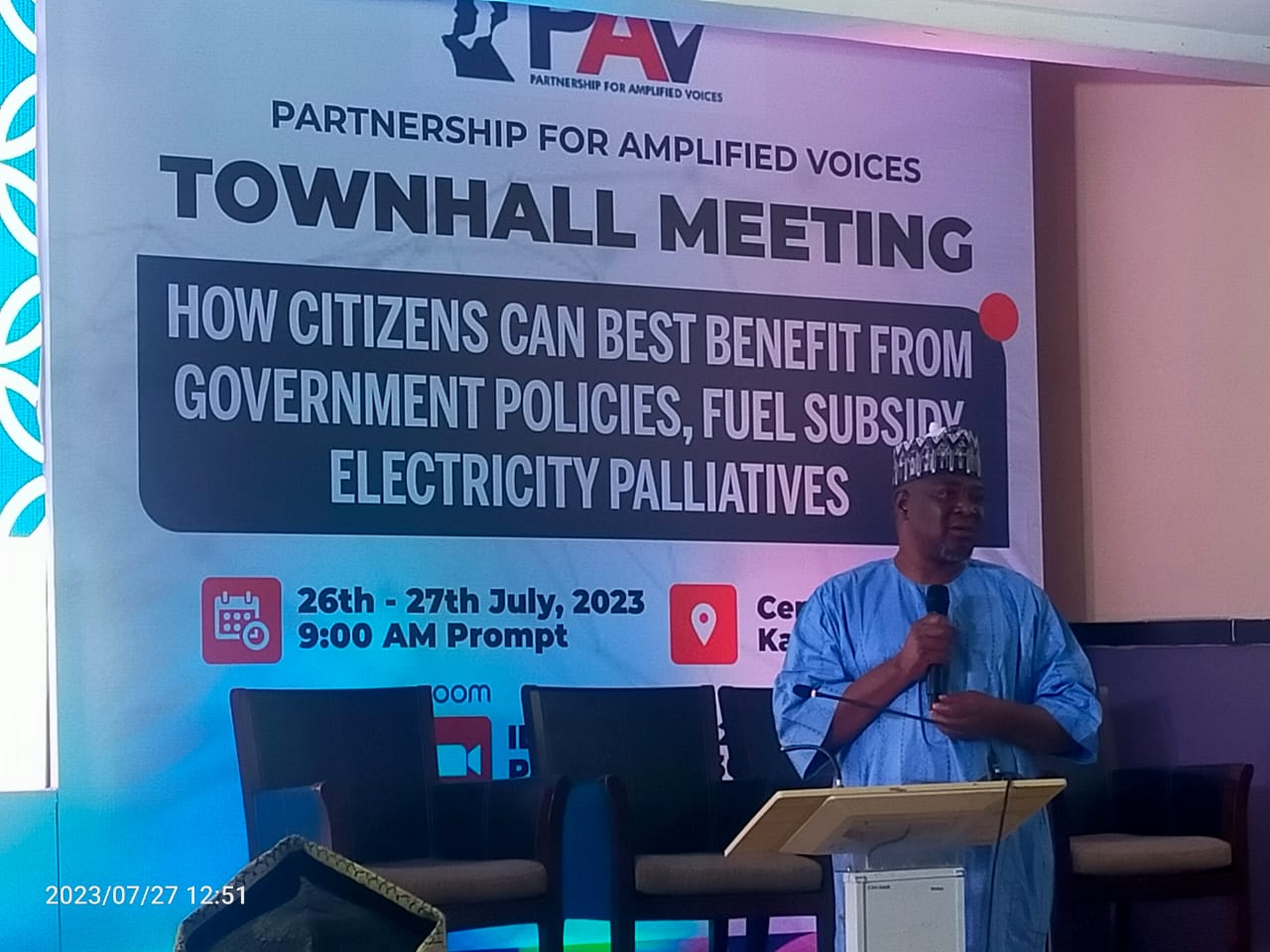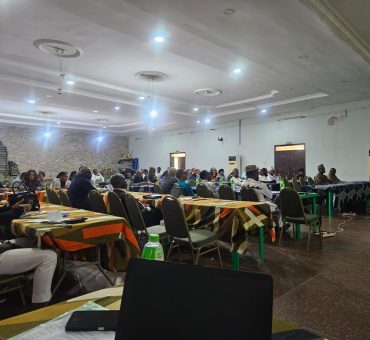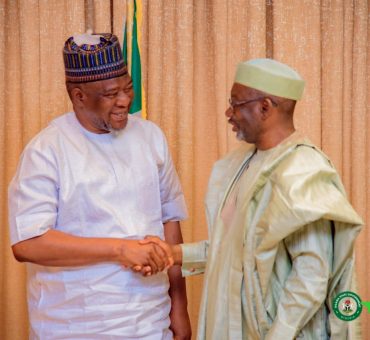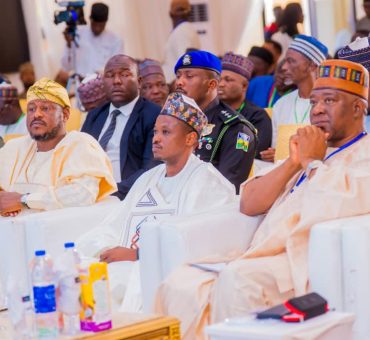Presentation of Dr. Abdulkarim Obaje, the National Coordinator of the Nigeria COVID-19 Action Recovery and Economic Stimulus (NG-CARES) Programme, in Kano, who unveiled the essence and impact of this groundbreaking initiative called NG-CARES. This was presented at the Townhall Meeting on How Citizens can best benefit from government policies, fuel subsidy, and electricity palliatives organized by Partnership for Amplified Voices
Speaking, Dr. Obaje said, The NG-CARES Programme, fuelled by a USD 750 Million credit from the World Bank, aimed to provide emergency relief to the most vulnerable individuals, farmers, households, communities, and micro-small enterprises affected by the COVID-19 pandemic.
Background of NG-CARES Programme
Each state, along with the Federal Capital Territory (FCT), was assigned a nominal allocation to the tune of USD 20 million and USD 15 million, respectively. The Federal CARES Support Unit (FCSU) was entrusted with USD 15 million. The ambitious goal was to reach approximately 10 million Nigerians over a three-year period, running from 2021 to 2024.
Moreover, the NG-CARES Programme was strategically designed to respond not only to the COVID-19 pandemic but also to other shocks like flooding, fire disasters, and the impact of economic policies that could exacerbate poverty among the less privileged.
The Disbursement Linked Indicators (DLIs)
The NG-CARES Programme operated under three primary results areas, each with its Disbursement Linked Indicators (DLIs):
Results Area 1: Social Safety Nets, Livelihood Grants, and Basic Services
- DLI 1.1: Social Transfer
- DLI 1.2: Labour Intensive Public-Workfare (LIPW)
- DLI 1.3: Livelihood Grants
- DLI 1.4: Community and Vulnerable Groups Basic Services Delivery
Results Area 2: Food Security
- DLI 2.1: Agricultural Inputs and Services
- DLI 2.2: Labour-Intensive Agricultural Infrastructure
- DLI 2.3: Agricultural Assets for Production and mitigating food loss and waste
- DLI 2.4: Upgrading wet market to function safely
Results Area 3: Facilitating Recovery and Enhancing Capabilities of MSEs
- DLI 3.1: MSE Matching Grants
- DLI 3.2: Operational Support Grants
- DLI 3.3: IT Enhancement Grants
Implementation Structure of the NG-CARES Programme
To ensure efficient implementation, the NG-CARES Programme leveraged existing State Government and FCT delivery platforms and agencies. These platforms were built on the success of prior government interventions, such as Community and Social Development Project (CSDP), Government Enterprise and Empowerment Programme (GEEP), and National Cash Transfer Programme (NCTP), among others. The NG-CARES Programme supported budgeted program expenditures and interventions at the state and FCT levels through the Programme for Result (PforR) funding instrument.
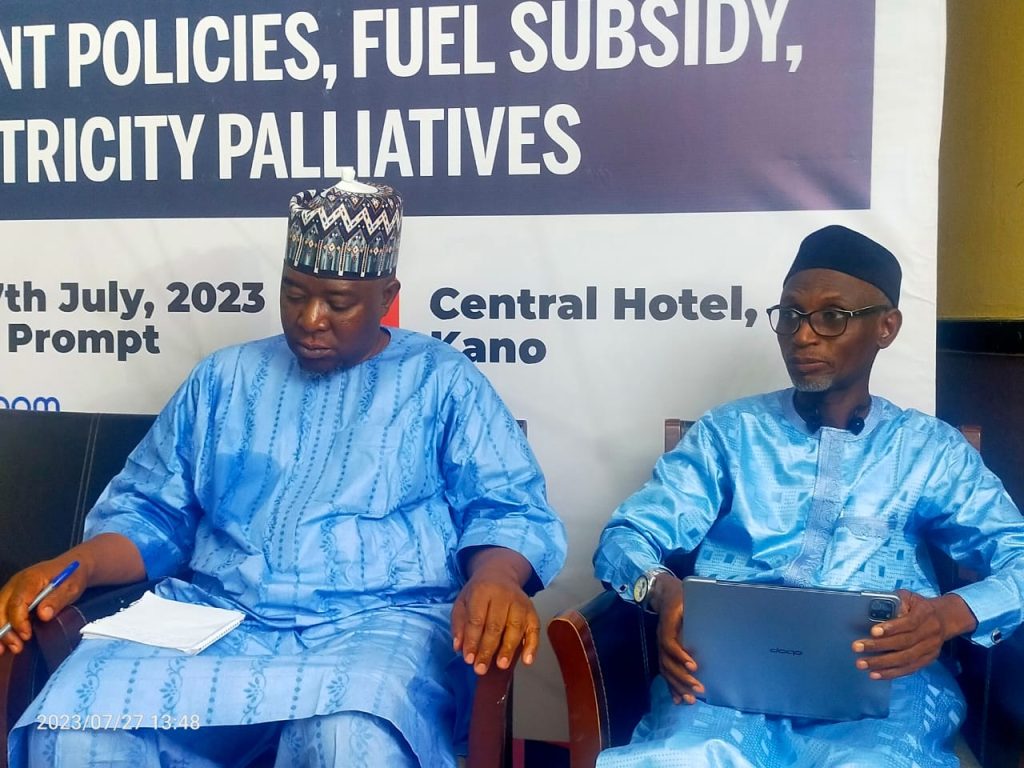
The Program Design
The NG-CARES Programme embraced true federalism, enabling the sub-nationals to have complete control over implementation, including funding, staffing, and institutional framework. The program spanned three critical sectors: Social Protection, Food Security, and support for Micro, Small, and Medium Enterprises (MSEs). Targeting the poor and vulnerable was achieved through state-owned Social Registers and State-approved Poverty Maps.
The World Bank, along with independent verification agencies and third-party monitors (NGOs), ensured transparency and the achievement of results. The Program’s focus on Security Management Action Plan as an eligibility criterion demonstrated its commitment to safety and stability.
Achievements of the NG-CARES Programme
Under the watchful eye of one Independent Verification Agent and 14 Third-Party Monitors, the NG-CARES Programme had successfully conducted two rounds of independent verification. During the first round, states posted results valued at 77.2 billion naira. The Program’s capacity-building initiatives further strengthened the workforce, enhancing Project Management and Monitoring and Evaluation skills.
Challenges and Recommendations
The NG-CARES Programme was not without its challenges. Non-adherence to the Funds Release Policy Agreement by some states led to delays in fund disbursement. Moreover, the Program’s relatively new PforR mechanism faced resistance due to its departure from the traditional Implementation Project Financing (IPF) model.
To overcome these hurdles, continuous advocacy and capacity-building efforts were recommended for both state and federal staff, emphasizing the importance of PforR and responsive mitigation strategies. Collaboration with relevant security agencies was also proposed to address security challenges.
Conclusion
As Dr. Abdulkarim Obaje concluded his presentation, the audience was filled with hope and admiration for the NG-CARES Programme. Designed to empower resilience and uplift millions of vulnerable Nigerians, this World Bank-financed initiative had the potential to drive positive change and transformation across the country. With the support of all stakeholders, the NG-CARES Programme stood as a beacon of hope in challenging times, leading Nigeria toward a brighter future.




